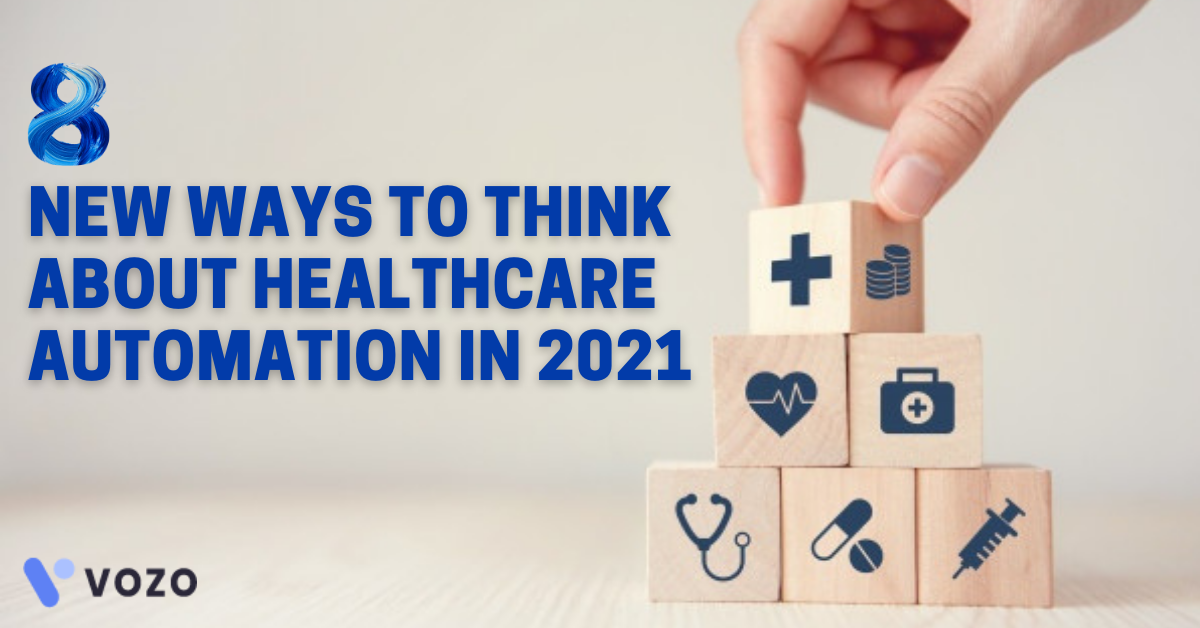8 New Ways To Think About Healthcare Automation In 2025
Automation is transforming healthcare today, by creating a vast opportunity for physicians, healthcare experts, payers, and patients towards delivering & achieving better care in 2021. The new technological advancements like artificial intelligence, machine learning are applied in every corner of healthcare settings right from scheduling to payments.
As the health tech leaders are working hard towards creating the best healthcare platforms like advanced electronic health records to achieve better patient experience and improve clinical outcomes – understanding the opportunities that healthcare automation provides is very crucial. In this article, we explain to you how automation in healthcare will benefit your practice.
Healthcare Automation In 2021: Benefits To Watch
1. Real-Time Data Generation To Enrich EHRs
Data generation is a very important aspect of the healthcare data retrieval process. The health IT vendors are working closely towards advancing the capabilities of EHR to generate and also extract real-time data with the help of new APIs. This will automatically ease the data extraction process, reduces physician burnout, and enhance patients care. Apart from this, with the help of healthcare automation, the providers can easily able to easily access the required information at the right time when needed.
2. Healthcare Automation Improves Ordering
Ordering is considered to be one of the biggest and time-consuming tasks for physicians. While working with the health records, it takes nearly a tool many clicks to complete a single order. Big thanks to the healthcare automation solutions that we are utilizing today! With the help of that, today ordering is made easy – predictive technologies and artificial intelligence can make a positive impact to drive efficiencies in the ordering process.
3. Automation Leads To Effective Billing Process
By utilizing healthcare automation technologies like AI in revenue cycle management can help healthcare organizations to generate bills to patients quickly before they leave the practice which ultimately improves patient satisfaction and creates a trustworthy relationship with the practice.
RELATED: Top 5 Must Read Medical Billing Trends For 2021
4. Automation Helps In Quality Healthcare Delivery
Healthcare automation helps physicians and health professionals to offer the best care to their patients on time. Patient health information will be readily available which can be easily accessed just by few clicks anytime and anywhere.
Processes like patient indexing, patient data entry, and health records are done easily with automation in healthcare. This simplifies care processes, increases efficiency, and improves patient engagement towards their care. Apart from this, automation also helps healthcare providers to monitor patients and remain connected with them by reminding them about their follow-up appointments, prescription renewal, and payments.
5. Automation Improves Patient Engagement
Nowadays people started showing interest in their health. They are eager to know the details about their health plans, medical records, and treatment details. As the usage of mobile phone users is increased a lot when compared to desktop users, people are using their mobile health applications to manage care.
The healthcare automation techniques will make it easier to schedule appointments, order medicines, view lab tests, check medical records and pay bills online via mobile apps. This kind of application also improves patient provider communication via secure messaging features.
RELATED: How EHRs Improve Patient Safety?: 6 Smart Ways
6. Automation Helps In Early Health Detection
Early detection of healthcare benefits patients in numerous ways. With technological advancements like AI in healthcare, it’s very easier to detect whether a patient has been affected by a particular disease especially before the critical stage. For example, if a patient suffers from lung cancer, it can easily detect before the critical stage with the help of healthcare automation technologies and can be cured very quickly.
7. Automation Reduces Errors
As the automation in healthcare sector helps in the most accurate diagnosis of treatments, there is a lower risk of complications. Doctors can be sure that patients are getting the best and most appropriate treatments on time. Automation also reduces the common errors which occur during patient data entry into digital health records and billing errors that occurs during the medical billing process.
8. Enhanced Communication
Automation in healthcare created better communication between patients and healthcare providers. For example, nowadays people are using online scheduling platforms to book health appointments with their physicians. With their busy timings, most patients forget their appointment dates and end up missing their appointments. We all need to thank the automation systems, with the help of an appointment reminder, the patient no show rates will be automatically reduced.
RELATED: Role Of Patient Portal In COVID-19 Vaccine Efforts
With the help of patient portal software, patients can easily schedule their appointments, cancel/reschedule an appointment when they needed, message directly with their physicians securely which ultimately reduces wait times.
Final Thoughts
With an increasing number of people seeking quality healthcare services, healthcare providers cannot able to manage the growing demand for advanced value-based healthcare services. With the help of healthcare automation, physicians can effectively deliver quality care and also have additional time for patients.
To get started on implementing healthcare automation services in your medical billing and electronic health records contact Vozo Today
About the author

With more than 4 years of experience in the dynamic healthcare technology landscape, Sid specializes in crafting compelling content on topics including EHR/EMR, patient portals, healthcare automation, remote patient monitoring, and health information exchange. His expertise lies in translating cutting-edge innovations and intricate topics into engaging narratives that resonate with diverse audiences.













